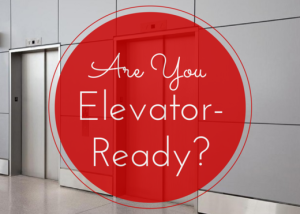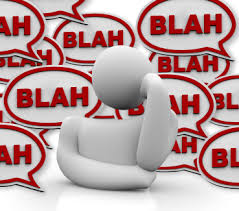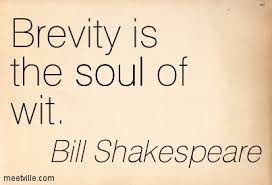 Librarians in their efforts to meet their customers’ needs have an inclination to provide an overabundance of information. Even when the patron is satisfied and has left the library, we frequently continue the search to ensure we have uncovered all relevant facts. It’s probably built into our DNA.
Librarians in their efforts to meet their customers’ needs have an inclination to provide an overabundance of information. Even when the patron is satisfied and has left the library, we frequently continue the search to ensure we have uncovered all relevant facts. It’s probably built into our DNA.
Unfortunately that tendency can cause people to tune us out when we are discussing the importance of the school library program. Our listener’s eyes glaze over and they furtively look for an escape, desperate to end the flow of information. OK—that may be hyperbole. It isn’t quite that bad, but our core message gets lost in flood of words we spill forth.
To make your point, start creating “elevator talks”. Many of you have heard about them and possibly how to craft them. It began, as so much does, in the business world where the idea was to sell yourself as a job candidate in one minute—the time it takes an elevator to get from the lobby to an upper floor.
Every day you meet people, whether they are in the supermarket, the mall, or guests in your library. While it’s not always appropriate to launch into an elevator talk about the value of the library program while at the checkout counter, sometimes you can perceive an opening. When you do, you should be ready.
The basic components of an elevator talk are: a bold, attention-grabbing statement, a corroborating follow up (sometimes from the research, but not necessarily), a strong conclusion that may suggest where the listener can verify what you have said. For example, you might open with “because of the extreme cuts to school library programs our kids are graduating high school lacking the skills to be successful in college and the global economy.” Your follow-up can refer to the many research studies connecting quality library programs with student learning and scores on high stakes test. Or you can explain while students are digital natives, studies have shown they are woefully incapable of conducting academic level research and distinguishing between facts and misinformation online.
If you are working in a good library program, you can close by inviting the person to see your library in action or refer them to your website if you show students projects as a result of their work in the library. When you don’t have that option, direct them to someplace they can learn more such as ilovelibraries.org. You can ask their opinion about libraries or encourage them to support school and public libraries at the ballot box. Just keep it brief. Have different elevator talks for casual meetings, talking with parents or speaking with a board member. In the last case, be careful. You don’t want to be seen as taking advantage of a chance meeting or doing so while the board member is accompanied by the principal.
Recognize you need to tweak your talk depending on your audience. You speak differently with people you know and those you don’t. A parent’s interest will be different from a business owner’s. And you don’t want to sound rehearsed or like you’re giving a prepared speech.
 Once you’ve “mastered” brevity, use it in your communication with administrators. Too often librarians send long emails (always a bad idea) or attach memos to them running well over a page. You try to explain all your reasoning and provide background information for your request. Invariably your principal tunes you out.
Once you’ve “mastered” brevity, use it in your communication with administrators. Too often librarians send long emails (always a bad idea) or attach memos to them running well over a page. You try to explain all your reasoning and provide background information for your request. Invariably your principal tunes you out.
Get to the point quickly. Do you want to have an author visit? Say so immediately. Don’t lead with justification and why it will promote reading. State your core message. Add one or two supporting statements, and end with saying you will set up an appointment to review details and answer any questions.
By using elevator talks as a model, your communication will improve and your message will be heard – and remembered.
